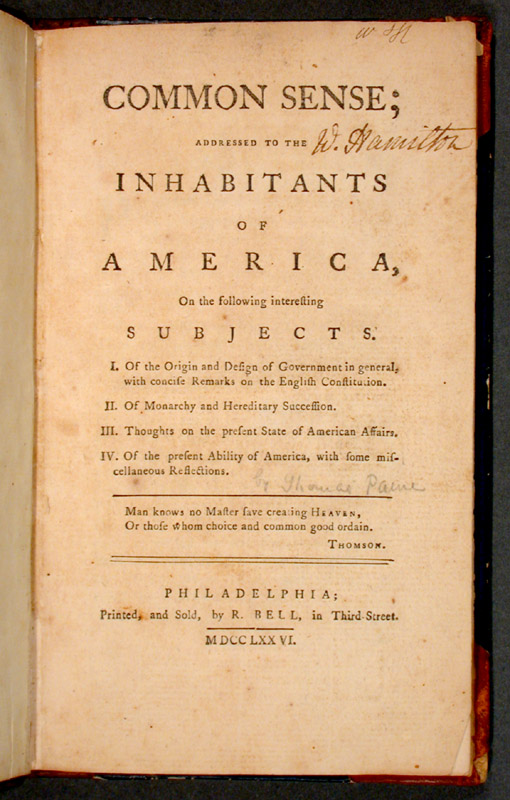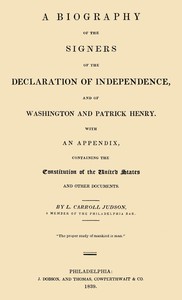Common Sense is a pamphlet written by Thomas Paine in 1775–1776 advocating independence from Great Britain to people in the Thirteen Colonies. Writing in clear and persuasive prose, Paine marshaled moral and political arguments to encourage common people in the Colonies to fight for egalitarian government

The star of this holiday!
Click here for Thomas Jefferson's rough draft
 American Prisoners of the Revolution
American Prisoners of the RevolutionScotland's High Court of the Admiralty, which was established in the mid-15th century, had jurisdiction over civil, criminal, and prize matters upon the high seas. The earliest extant records of the Admiralty Court date from 1657, and they are housed in the National Archives of Scotland in Edinburgh. For this new book, the indefatigable David Dobson has culled the records of the High Court of the Admiralty--mostly from the court's Register of Decrees--for any reference to America between the years 1675 and 1800. American Data From the Records of the High Court of the Admiralty of Scotland, 1675-1800 is thus a transcription of 3,000 references to Scotsmen with a maritime connection to the New World, as gleaned from relatively obscure maritime records.
American Creation
From the first shots fired at Lexington to the signing of the Declaration of Independence to the negotiations for the Louisiana Purchase, Joseph J. Ellis guides us through the decisive issues of the nation's founding, and illuminates the emerging philosophies, shifting alliances, and personal and political foibles of our now iconic leaders–Washington, Jefferson, Madison, Hamilton, and Adams. He casts an incisive eye on the founders' achievements, arguing that the American Revolution was, paradoxically, an evolution–and that part of what made it so extraordinary was the gradual pace at which it occurred. He explains how the idea of a strong federal government was eventually embraced by the American people, and details the emergence of the two-party system, which stands as the founders' most enduring legacy.Ellis is equally incisive about their failures, and he makes clear how their inability to abolish slavery and to reach a just settlement with the Native Americans has played an equally important role in shaping our national character. With eloquence and insight, Ellis strips the mythic veneer of the revolutionary generation to reveal men both human and inspired, possessed of both brilliance and blindness. American Creation is an audiobook that delineates an era of flawed greatness, at a time when understanding our origins is more important than ever.



No comments:
Post a Comment